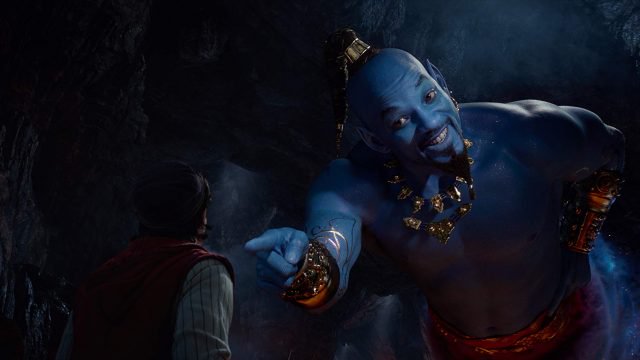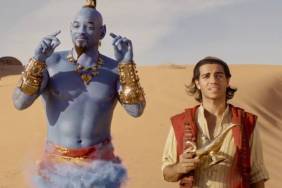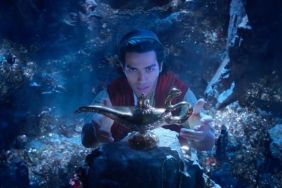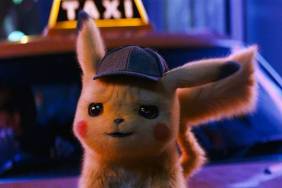Disney’s Aladdin is a seminal work for the Mouse House. So when the film was slated to be the next in a series of live-action Disney remakes, eyebrows were naturally raised. In many ways, the original Aladdin was ahead of its time and a stone cold classic. Successfully recreating that success in the modern era was an uphill battle for the remake.
It’s hard not to judge Aladdin based on its predecessor. The remake needed to justify its existence while adding something new to be worthwhile. Despite the botched marketing for Aladdin, the remake proves that it’s a story worth retelling in live-action. This is a fairly magical experience – for the most part. Unfortunately, the movie also falls short of being a true “diamond in the rough.”
Ritchie’s Riches
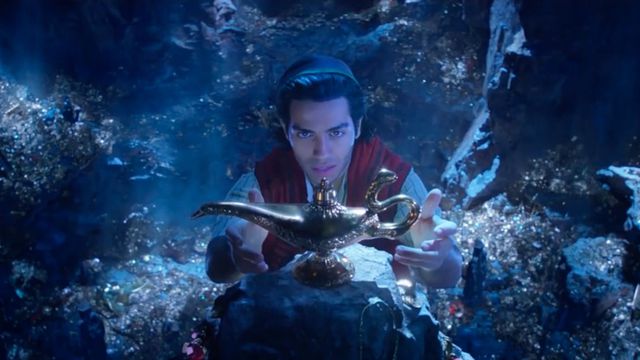
Although Guy Ritchie is largely known for his crime dramas, his blockbuster studio films have been a bit of a crapshoot. Ritchie has seen various successes and failures from Sherlock Holmes to King Arthur: Legend of the Sword. Aladdin is easily his most interesting effort in a decade. Ritchie’s craftsmanship is highly unexpected, especially in the way he brings the vibrant world of Agrabah to life. The dramatic elements are also well realized. Interestingly, it’s the awkward, almost dry comedic sensibility that Ritchie brings to the table that makes it unique and different.
Aladdin starts off in a sudden and slightly abrupt manner. However, it quickly finds its flow by the end of the first act. As much as Ritchie’s trademark stylized filmmaking is present, it also feels like nothing he’s ever done before. Despite being an odd choice to direct Aladdin, Ritchie turns out to be a solid choice for the material.
One Step Ahead of the Breadline
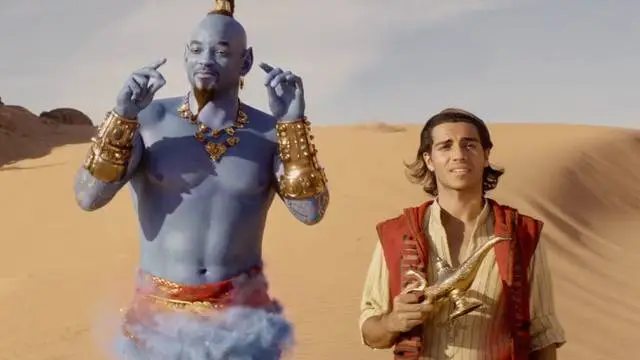
The screenplay by Ritchie and veteran scribe John August can be hit-and-miss. Basically, the film is a retread of the original. The situations are essentially the same, but they also play out in slightly different ways than before. There are some good setups and payoffs in the writing, but it’s never enough to truly elevate the material. The first half is solid, but the story is rushed throughout. It’s from the midpoint onward that the writing gets dodgy. The basic elements are there, and yet the film largely coasts on the chemistry of the three leads.
As a result, the third act is underwhelming because it feels forced and bloated. Perhaps the biggest character changes come in the form of Jasmine and Jafar. While Jasmine is updated in a more relevant way than her predecessor, Jafar is a big disappointment. In the original, Jafar was both a smart and intimidating presence. He was a devious and cunning character, none of which translates into this remake. Casting might be part of the issue, but the writing is also to blame.
Diamonds in the Rough
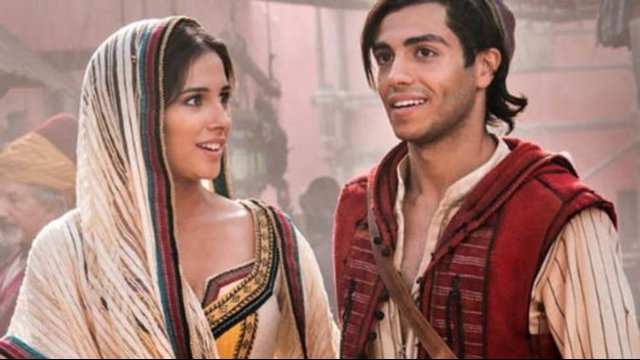
The casting of Aladdin has remained a point of controversy. Especially for fans of the original, the casting choices remained contentious throughout its production. Perhaps the biggest surprise is how well Will Smith’s performance integrates into the film. Stepping into the shoes of the late Robin Williams is a tough order for any actor. Regardless, Smith’s turn as Genie is perhaps his most energetic performance in the better part of a decade. Smith could have easily fallen into doing an impression of Williams. Instead, Smith puts his own unexpected spin on the material, while still staying true to the heart of the character.
Mena Massoud grounds Aladdin himself in a way that is both earnest and endearing. Massoud is clearly a multifaceted talent worth keeping an eye on. Similarly, Naomi Scott puts an interesting, yet important spin on Jasmine. Scott’s casting is pitch-perfect, and she brings a vulnerable, regal, and modern approach to the classic Disney princess. In short, it could very well be a star-making performance.
Out of all the main players, Marwan Kenzari’s Jafar is easily the most disappointing. It’s hard to tell if the direction, writing, or casting are to blame. It’s probably a combination of all these elements, but this is by far the film’s biggest casting misstep. Kenzari’s nasal, almost whiny performance feels disconnected from the rest of the movie.
More Than The Sum Of Its Parts
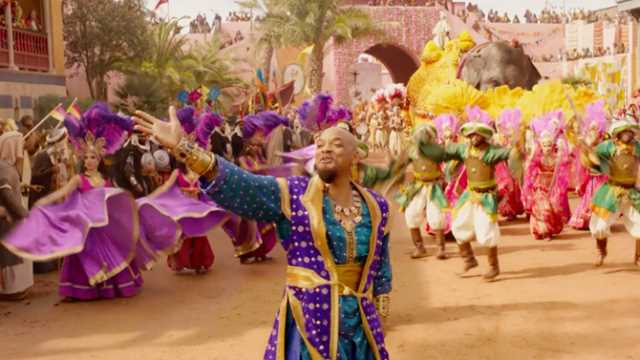
Aladdin is a sight to behold, especially within the costume and production design departments. The overall work is visually staggering at times, especially during the musical numbers. The “Prince Ali” sequence alone features nearly a thousand dancers and extras. It’s during moments like these that the film excels. There are also a few new songs from returning composer Alan Menken. Regardless, most of the music is a slightly more bombastic version of what came before. The visual effects are also impressive, especially the digital characters that ILM brings to life. The Cave of Wonders sequence absolutely rocks, but the real MVPs here are the animators behind the magic carpet.
Overall, the film somehow manages to capture the spirit of the original, while also adding its own variations. It’s not perfect by any means, but it’s still enjoyable enough. As a standalone film, the remake is good, but not great either. However, it is ultimately far more entertaining than it has any right to be. Smith’s manic performance is a highlight, playing into the literal wish fulfillment of the character and story. In truth, Aladdin is much more than the sum of its parts. It should have never worked, and yet it was far more enjoyable than anyone in their right mind could have predicted.
